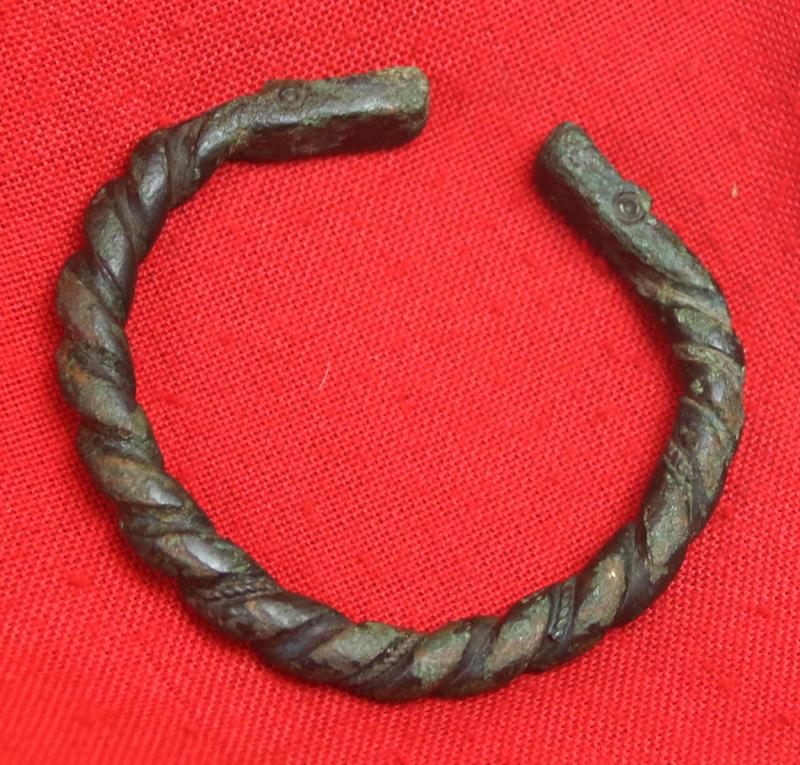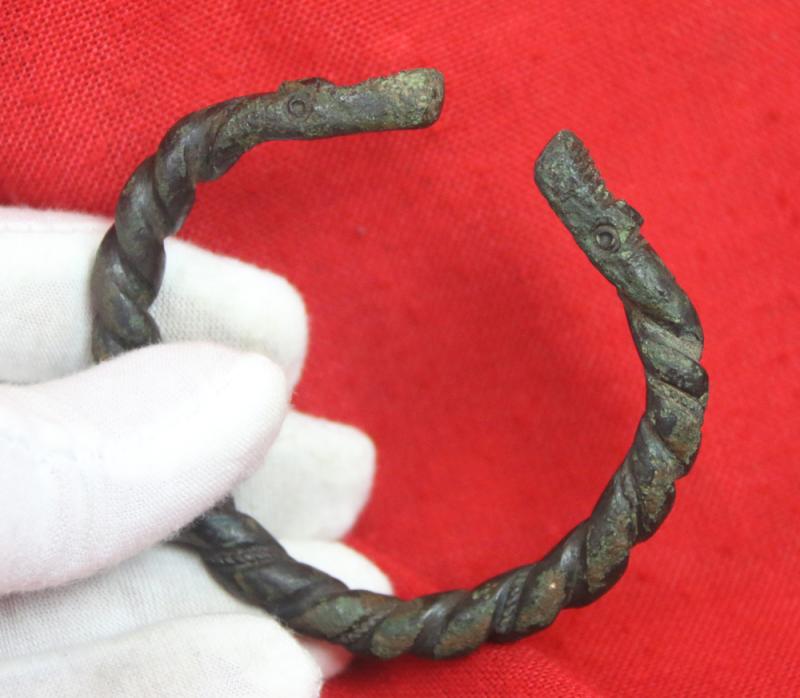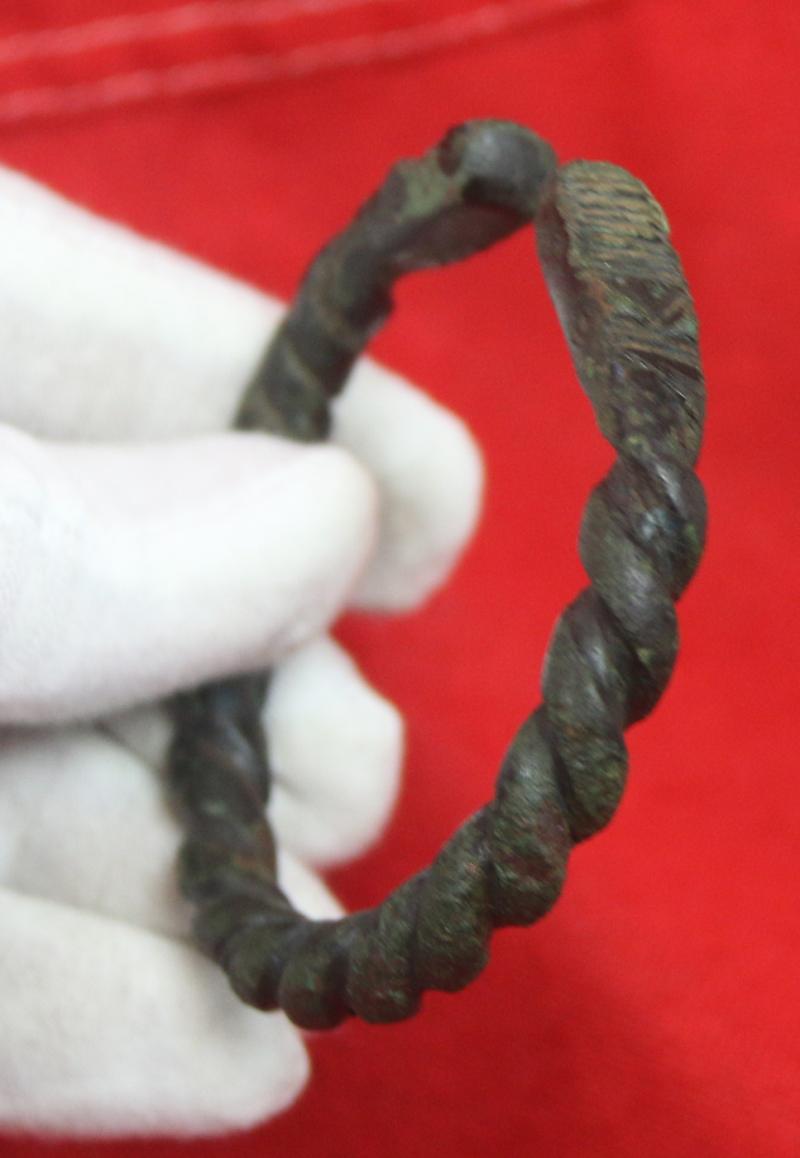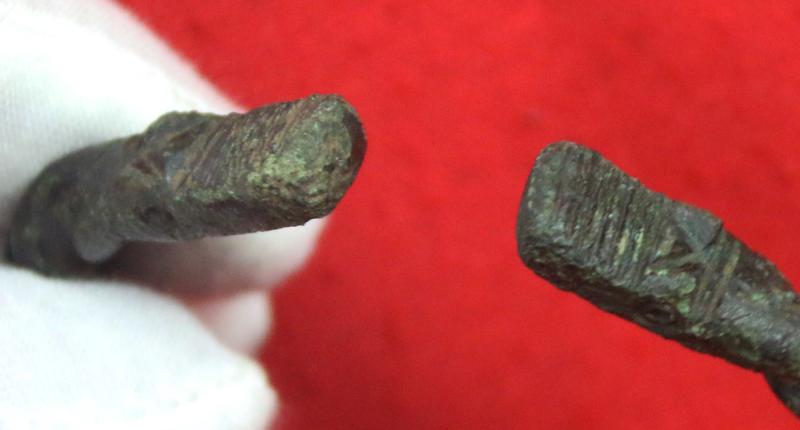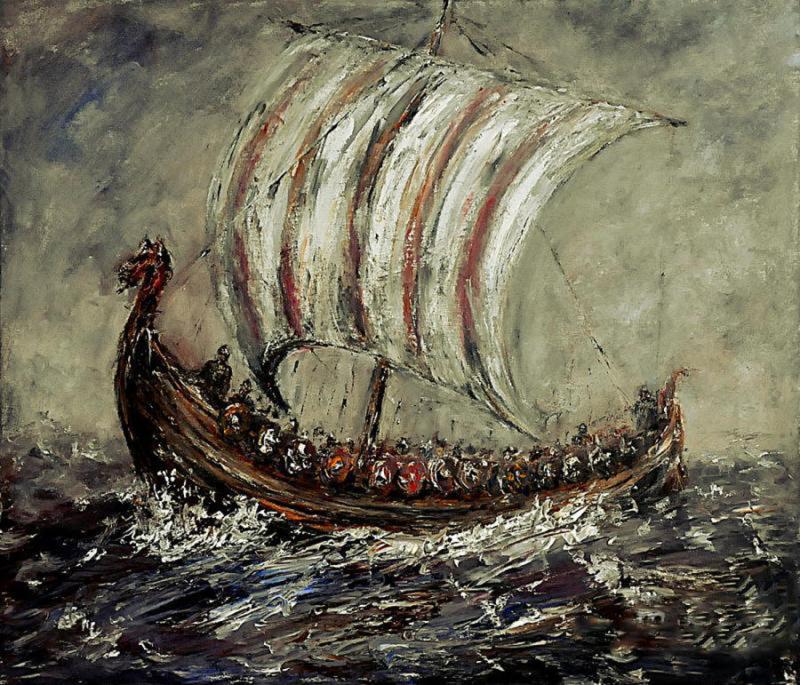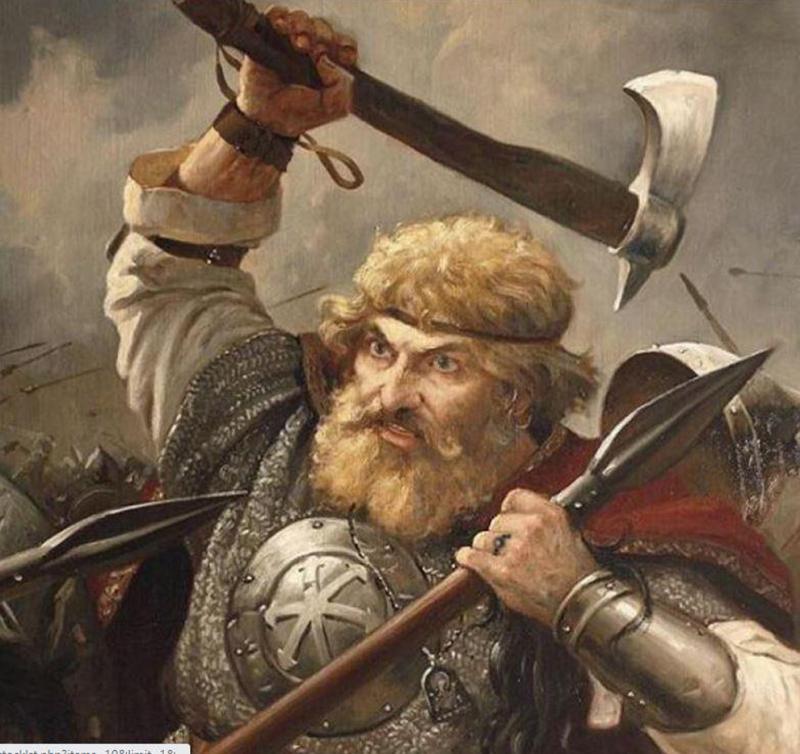A 9th Century 'Gotland Type' Viking Warrior's Dragon Head Bronze Armilla Arm Ring
A fabulous Viking twisted wire bronze alloy arm ring bracelet. Mounted at each end with a dragon or Draken head. A similar original Viking bracelet was discovered in Gotland, and henceforth this rare type of original Viking arm ring is known as the 'Gotland' type,a most attractive, beautiful and impressive original Viking warriors bracelet arm ring.
Knowledge about the arms and armour and body adornments such as bracelets, torcs, rings and pendants, of the Viking age is based on archaeological finds, pictorial representation, and to some extent on the accounts in the Norse sagas and Norse laws recorded in the 13th century. According to custom, all free Norse men were required to own weapons and were permitted to carry them all the time, and body adornments were a way to set one apart, the more successful in combat a warrior was was the greater his share of the looted booty, and this success could only be best shown by him in his body adornment, such as rings, torcs, wrist and arm bracelets, or pendants, and finally topped off with a wolf fur cloak. The arms he bore and his jewellery were indicative of a Viking's social status: a wealthy Viking had a complete ensemble of a helmet, shield, mail shirt, sword if his status was the highest otherwise spear or axe, and his body adornments. However, swords were rarely used in battle in the same quantity as axes, as few Vikings were of the status to own or carry a sword, A typical bondi (freeman) was more likely to fight with a spear and shield, and axe, and most also carried a seax as a utility knife and side-arm. Bows were used in the opening stages of land battles and at sea, but they tended to be considered less "honourable" than a melee weapon.
The warfare and violence of the Vikings were often motivated and fuelled by their beliefs in Norse religion, focusing on Thor and Odin, the gods of war and death. In combat, it is believed that the Vikings sometimes engaged in a disordered style of frenetic, furious fighting known as berserkergang, leading them to be termed berserkers. Such tactics may have been deployed intentionally by shock troops, and the berserk-state may have been induced through ingestion of materials with psychoactive properties, such as the hallucinogenic mushrooms, Amanita muscaria, or large amounts of alcohol. Perhaps the most common hand weapon among Vikings was the axe, swords were far more expensive to make, and only wealthy warriors could possibly afford them.
Vikings and Norse people wore arm rings (also known as Torcs) as a sign of their wealth and status, and as a sign of loyalty. An arm ring is a type of heavy jewellry that is worn around the upper or lower arm. Arm rings might made of precious metals such as gold or silver, but for combat bronze was more sustainable
Norse arm rings were usually given as gifts to mark special occasions such as births, weddings, or military victories. They were also sometimes used as currency. In some cases, arm rings were passed down from generation to generation as family heirlooms. Viking arm rings have been found at many old Viking locations.
The meaning of a Viking arm ring could vary depending on its owner. For some people, it may have been a symbol of their power and wealth. For others, it may have represented their family history or heritage.
Whatever the meaning of a Viking arm ring may have been, it is clear that these pieces of jewellery were important to the Norse people. Arm rings were more than just fashion accessories; they held significant value both socially and economically.
Code: 24787


